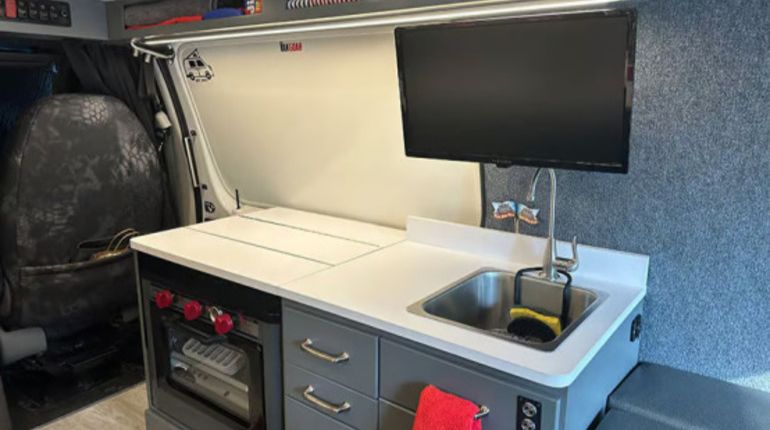When purchasing a used car, there’s more to it than finding a good deal. A hasty decision can lead to potential headaches and financial regrets. You must follow a comprehensive buying checklist to ensure a smooth and satisfying purchase. In this post, we’ll walk you through the key elements to consider when buying a used car.
This should include everything from the make and model of the car to its fuel economy and safety features. This will help you identify any potential problems with the car before you commit to buying it.
Finally, remember that buying a used car is a big financial decision, so take your time and research before making any final decisions. So, let’s start right now.
Table of contents
- 1 What documents should I get to buying a used car in the UK?
- 2 What should I do after I buying a used car?
- 3 Top questions to ask the seller when buying a used car
- 4 Do I require insurance when buying a used car in the UK?
- 5 What are my rights when I buying a used car in the UK?
- 6 What to consider when buying a used car?
- 7 Buying a used car from dealer warranty
- 8 Privately buying a used car from seller in the UK
- 9 Used car MOT and service history checks:
- 10 Getting an issue to court? What is the process?
What documents should I get to buying a used car in the UK?
You should request the registration document (V5C), the MOT certificate, a complete service history, and any write-off car checks when buying a used automobile (if applicable).
Always make sure everything is legal and in order and that this paperwork match the car in question. For further peace of mind, perform your own car check from the Auto Experts.
How to get a used car at the best price in the UK?
Never buy a vehicle from a private seller in a public location. Also, do not purchase a car from a private seller before viewing it.
Ask questions if it isn’t; the seller could be a dealer posing as a private seller, or the vehicle might even be stolen.
You must take precautions at every stage of the car-buying process check with used car buying guides, from deciding where to buy from to understanding your rights as a buyer and what to look for when you inspect the vehicle.
Privately buying a used car can be considerably more affordable than going to a dealer if you’re on a limited budget.
What should I do after I buying a used car?
Ensure you have the road tax and car insurance necessary to drive your vehicle home legally.
Once it has been brought home, familiarise yourself with your new vehicle (including completely reading the owner’s manual) and apply for breakdown insurance for added peace of mind while driving.
Crucial elements to look for when buying a used car
You must consider several crucial elements to guarantee you make a good and educated decision when purchasing a used car. Here’s a breakdown of what to look for when buying a used car:
- Budget: Set a spending limit and adhere to it. Consider the purchase price and recurring costs like taxes, insurance, and upkeep.
- Vehicle History: Obtain a comprehensive vehicle history report to check for accidents, title issues, and maintenance records. This report provides vital insights into the car’s past.
- Make and Model: Choose a car that suits your needs and lifestyle—research different makes and models to find the one that fits your requirements.
- Exterior Inspection: Carefully examine the car’s exterior for signs of damage, rust, or poor maintenance. Check the paint, body panels, lights, and tires.
- Interior Examination: Inspect the interior for wear and tear. Pay attention to the condition of the seats, dashboard, electronics, and any unusual odours.
- Test Drive: Take the vehicle for a spin to determine its performance. Listen for unusual sounds, check how it handles, and ensure the transmission shifts smoothly.
- Mechanical Inspection: Have a trusted mechanic inspect the car’s engine and mechanical components. This step can uncover hidden issues.
- Fuel Efficiency: Consider the car’s fuel economy and research its estimated miles per gallon (MPG). A fuel-efficient car can save you money in the long run.
- Safety Features: Investigate the car’s safety features, such as airbags, anti-lock brakes, stability control, and safety rating. Prioritize safety for peace of mind.
- Ownership Costs: Calculate ongoing expenses like insurance rates, taxes, and maintenance. Be prepared for the total cost of ownership.
- Price Negotiation: Don’t hesitate to negotiate the price. Research the car’s fair market value and use it as a bargaining tool.
- Title Check: Ensure the car’s title is clear and liens-free. A problematic title can lead to legal issues.
- Warranty Options: Consider purchasing an extended warranty if available. It can provide added protection against unexpected repairs.
By carefully considering these factors and conducting thorough research, you can make a well-informed decision check when buying a used car, minimizing the risk of purchasing a vehicle with hidden problems.
If you’re exploring options in the market, Dahl Ford is a reputable choice known for quality and customer satisfaction.
Top questions to ask the seller when buying a used car
Although purchasing a used car might be stressful, if you believe you have discovered the ideal vehicle, ask the seller these essential questions to help put your mind at ease.
-
- Can I see the papers?
Ask to examine the documents that should be included with a used vehicle, including the V5C certificate and complete service history. A vehicle’s history can be compared to information on our vehicle history report.
-
- Why are you trying to sell the car?
You can disguise it as casual chat, but you put them on the spot by pressing the seller for details about why they want to sell the car. They might get caught off guard by this and blow up something that wasn’t mentioned in the description.
-
- Are you the registered keeper?
If the seller is not the vehicle’s registered owner, they will unlikely be able to respond to any of your inquiries. You never know, they might just be selling it to a relative, but act with caution.
-
- Is the vehicle involved in any accidents?
Internal damage cannot be mentioned in the description if the vehicle has been in an accident. Even worse, if the car has been written off, it could not even be legal to sell it, meaning that if you acquire it, you might end up with an illegal motor.
Do I require insurance when buying a used car in the UK?
You’ll need VED (road tax) and insurance if you intend to drive your new property home to ensure you’re not breaking the law.
The simplest approach to getting insurance before driving home in a new vehicle is to get a quotation first. Then, when you’re ready to take out the insurance policy, you have to click online or call to accept it.
To legally drive the car away, you must purchase VED and obtain insurance (vehicle excise duty – road tax).
What are my rights when I buying a used car in the UK?
All cars purchased from dealers must comply with the Consumer Rights Act’s requirements for satisfactory quality, suitability for use, and description.
Roadworthy, or fit and safe to drive, refers to a vehicle purchased through a dealer or privately.
Anyone selling a car that is not roadworthy is breaking the law, according to Section 75 of the Road Traffic Act of 1988.
What to consider when buying a used car?
Used Car Buying Guides:
Paying for the security you receive from a garage may make sense if the car is an investment—your family’s vehicle for the next 10 years.
However, if the upfront cost is your main concern and the vehicle is perhaps an in-between runabout for £500, it might make sense to skip the warranties in favour of the lowest price.
Independent garages can range in size (and quality), but they typically serve the medium car sales market—that is, cars that are too old for main dealers but aren’t quite budget bangers.
Buying a used car from dealer warranty
A main dealer or garage is likelier to have performed a thorough inspection on a used vehicle and provide a solid warranty (usually 6 or 12 months).
Although doing so will increase the overall cost of purchasing the vehicle, it can provide you with priceless confidence that the vehicle has undergone a comprehensive inspection and is protected by a warranty.
Privately buying a used car from seller in the UK
When a used car is sold privately as opposed to at a dealership, the price is generally lower, and there is frequently more opportunity for negotiation because the seller isn’t looking to turn a profit.
When purchasing a car privately, you can speak with the previous owner and see how well they maintained it.
For instance, if a vehicle is clean and has only a few minor bodywork flaws, it has likely been well-maintained throughout its existence. However, it’s more difficult to determine how well-maintained a vehicle has been because most dealers use a car valeting professional.
Used car MOT and service history checks:
An MOT certificate is no longer as important as once because you can now check a car’s MOT history check online to see if it has a valid MOT.
If you are unfamiliar with the MOT test, it is a yearly mandatory roadworthiness test performed on all vehicles over three years old. Check the expiration date on the MOT certificate (or online) and note any advisories suggested by the tester. It’s easy to check some (e.g. tread depth on a tyre), but others aren’t (e.g. underbody rust) and may indicate the seller is trying to get rid of a problem motor before it costs too much.
When purchasing a used car, a detailed service history check is advantageous. It may or may not be important based on the price, age, and type of car – on a £500 banger, for instance, you’re unlikely to get much service history.
Still, you’ll want a fully-stamped service book on a more expensive specialist car to prove it’s been looked after.
Read our complete MOT guide for hints and tips.
Getting an issue to court? What is the process?
If you cannot reach an amicable resolution with the dealership, there is a process in place that can provide a solution. If allowing them to remedy any breaches of contract does not come to fruition, the next stage is to send a ‘letter before action’.
Here is a useful website for the legal process.








